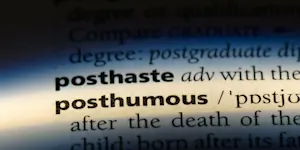What Makes This Word Tick
"Wield" is one of those action-packed words that conjures up images of knights in armor or a brisk game of croquet. It means to hold and use a tool or weapon, often implying a certain degree of skill or authority. So whether you're wielding a sword or a hammer, it suggests you're not only in control but executing with grace and power.
If Wield Were a Person…
Picture "Wield" as a confident, perhaps slightly flamboyant character flourishing a fencing sword or brandishing a paintbrush like a maestro. They're comfortable commanding attention and thrive in their role, becoming the life of the renaissance fair or the star of an art gala.
How This Word Has Changed Over Time
The concept of wielding has remained remarkably consistent over the centuries. While its origins are Old English, the essence of controlling and handling with expertise has not wavered. This word has seen more dramatic contexts fade—say, from medieval battlefields to the adept use of modern tools—but "wield" still implies competence and mastery.
Old Sayings and Proverbs That Use Wield
While specific old proverbs may not directly include "wield," the sentiment echoes in phrases like "wielding influence," which conjures the image of someone skillfully managing people or situations as if they were tangible objects that require careful handling.
Surprising Facts About Wield
Did you know that "wield" shares etymological roots with the word "wealth"? They both pertain to possession and power. In this case, not the power of currency but the power of hands-on control.
Out and About With This Word
From the local blacksmith's workshop to the bustling auto-mechanic garage, "wield" finds its place wherever there's a need for deft handling of tools. It's practically at home in the sentences of fantasy novels and action hero scripts alike, wielding its own brand of literary might.
Pop Culture Moments Where Wield Was Used
In "Star Wars," the phrase "wield the Force" captures the attention of sci-fi fans around the planet, suggesting a mystical way of controlling with substantial but subtle power. Similarly, in comic book lore, to "wield" the mighty hammer Mjölnir requires more than just strength—only the worthy can lift it.
The Word in Literature
"Wield" is a favorite in epic tales and fantasies, where characters often wield swords, staffs, and other enchanted items. It fits seamlessly into narratives by authors like J.R.R. Tolkien and George R.R. Martin, who create worlds where control over one's weapon (or magic) is a central tenet of heroism.
Moments in History with Wield
The word "wield" could describe Joan of Arc’s legendary command of her army in the 15th century, wielding not just a sword but her nation’s hopes and dreams as well. The spirit of "wield" resonates with those skills and decisive moments where mastery made all the difference.
This Word Around the World
In German, "wield" might translate to "führen," which conveys leading and controlling. In Japanese, you'd say "操る" (ayatsuru) for manipulating or proficiently handling. Each culture reflects "wield's" sense of mastery and capability in its own way.
Where Does It Come From?
Tracing back to Old English, "wield" originates from "wealdan," which meant to possess or control. This ancient root speaks to the power inherent in the word, a legacy of commanding presence extending from the past to the present.
How People Misuse This Word
Sometimes people might say "wield" when they simply mean "hold" or "carry," forgetting that "wield" implies an active, skillful use rather than mere possession.
Words It’s Often Confused With
Yield: Often switched despite "yield" implying giving way or producing, unlike wield's commanding force.
Weild: A common misspelling, but “wield” is the correct version.
Weld: Sometimes mixed due to its physical connotation, yet "weld" is about joining metals.
Additional Synonyms and Antonyms
Synonyms to expand your vocabulary include "maneuver," "brandish," and "control," while antonyms like "yield," "surrender," and "release" capture the opposite essence of skillful handling.
Want to Try It Out in a Sentence?
"Even in his golden years, Grandpa was able to wield a paintbrush with the same mastery and finesse he had in his youth, creating landscapes that took your breath away."
















